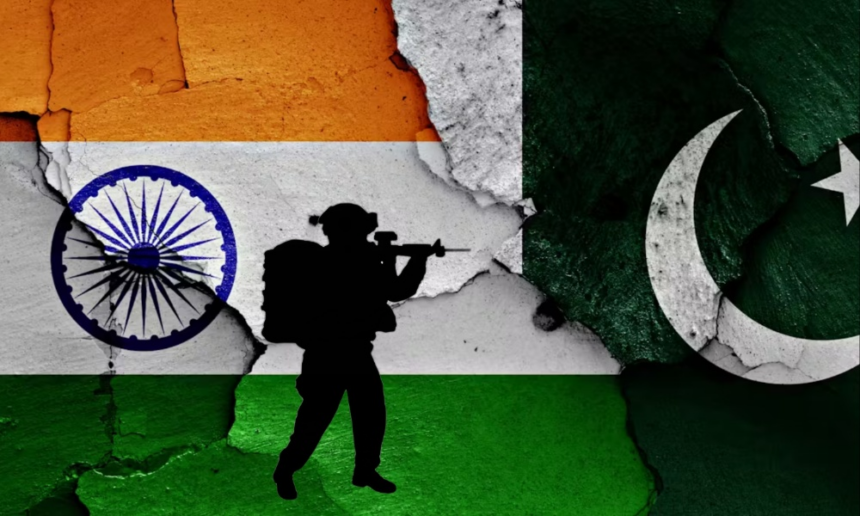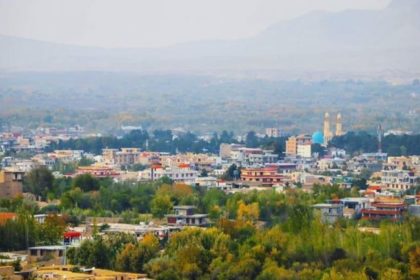RASC News Agency: A recently leaked confidential document from the Taliban’s intelligence service has exposed what appears to be a covert operation by Pakistan’s Inter-Services Intelligence (ISI) aimed at orchestrating targeted attacks against Indian nationals currently living or working in Afghanistan. The revelation, first reported by the Russian outlet Nezavisimaya Gazeta, underscores Islamabad’s ongoing manipulation of Afghan soil through its long-standing proxy, the Taliban.
According to the leaked document signed by Assadullah Baryali, the head of the Taliban’s Directorate 376 of Intelligence the ISI has deployed operational teams inside Kabul with a specific mission: to identify, track, and tactically eliminate Indian citizens residing in Afghanistan. The document explicitly states that the ISI’s objective is to sabotage the fragile diplomatic engagement between India and the Taliban, by instigating incidents that would deepen mistrust and render future cooperation impossible.
“ISI teams operating in Kabul have been instructed to locate the residences of Indian citizens and carry out tactical eliminations,” the memo reads. “The intention is to provoke hostilities between India and the current Afghan administration.”
Baryali’s communication further directs Taliban security and intelligence offices to monitor all suspicious movements and to promptly alert higher intelligence bodies in the event of any unusual activity. The tone of the memo half-warning, half-instruction suggests a reluctant acknowledgment within Taliban ranks of ISI’s shadow command and its operational freedom inside Afghanistan.
This revelation fits neatly into a decades-old pattern. During the previous republican government in Kabul, Indian diplomats, engineers, and aid workers were repeatedly targeted in high-profile suicide bombings, particularly in Kabul and Jalalabad. Although the Taliban routinely claimed responsibility at the time, subsequent investigations revealed that these operations were conceived and directed from Pakistan’s ISI headquarters in Rawalpindi, using Taliban fighters as expendable tools in Islamabad’s regional agenda.
A former senior Afghanistan’s intelligence officer, speaking anonymously to Nezavisimaya Gazeta, confirmed that Islamabad has always perceived India’s developmental presence in Afghanistan as an existential threat.
“Pakistan’s security establishment sees every Indian entering Afghanistan as a potential intelligence operative,” he said. “Even genuine investors or engineers are viewed as extensions of RAW [India’s external intelligence agency]. The ISI’s strategy has always been to neutralize Indian influence sometimes literally.”
The officer further revealed that Pakistan’s infiltration of the Taliban’s intelligence networks is now so deep that Afghanistani territory functions as an operational rear base for ISI missions. “The Taliban have neither the capability nor the will to resist ISI directives,” he added. “Their intelligence hierarchy is built around Pakistan’s tutelage; they are an extension of it, not independent actors.”
The leaked document underscores a broader truth long known to regional observers: the Taliban’s claim of independence is a fiction. Despite their rhetoric of sovereignty, the group’s intelligence and military apparatus remain subservient to Pakistan’s strategic interests. The ISI, which nurtured, armed, and financed the Taliban’s rise, continues to dictate their external alignments and internal security postures.
Security analysts argue that the Taliban’s silence on the ISI’s activities is itself a form of complicity. Even as Pakistan’s intelligence agents move freely within Afghanistan, conducting surveillance and operational planning, the Taliban have neither condemned nor curtailed their actions. Instead, they have chosen to ignore blatant violations of Afghanistani sovereignty, betraying their dependence on the very state that manipulates them.
According to intelligence experts in the region, ISI’s growing operational latitude within Afghanistan serves multiple objectives:
• To undermine India’s diplomatic footprint and humanitarian engagement;
• To maintain Afghanistan as a buffer and launchpad for Pakistan’s proxy networks;
• To ensure the Taliban remain politically indebted and strategically compliant.
“The Taliban are not governing a sovereign state,” remarked a South Asian security analyst. “They are administering an occupied shell of a country whose policies are crafted in Rawalpindi and rubber-stamped in Kandahar.”
If verified, this revelation carries serious implications for regional stability. Analysts warn that any attack against Indian nationals could trigger a diplomatic rupture and potentially provoke retaliatory actions from India either overtly or through covert countermeasures. Such escalation would not only deepen the Afghanistani crisis but could also expose Pakistan’s direct involvement in transnational terrorism, a charge Islamabad has long sought to evade.
Moreover, the incident highlights the Taliban’s incapacity to ensure the security of foreign nationals, or even to police their own capital against foreign intelligence operatives. The group’s pretense of control masks a fragmented and externally dependent system, where Pakistan’s directives supersede Afghanistan’s national interests.
The presence of ISI teams operating with impunity in Kabul symbolizes the collapse of Afghanistani sovereignty under Taliban rule a regime that functions less as a government and more as a proxy administrative arm of Pakistan’s deep state.
As regional actors monitor the fallout, one fact is becoming increasingly undeniable: the Taliban’s Afghanistan has ceased to act as a nation and now serves as a geopolitical pawn in Pakistan’s larger game of influence. From suppressing women’s rights and silencing journalists to enabling militant sanctuaries and covert intelligence operations, every move made by the Taliban reinforces their role as a client regime, not a sovereign authority.
Experts warn that if the Taliban continue to allow ISI operatives to dictate security policies within Afghanistan, the country risks transforming into a permanent theater for proxy conflict, with devastating consequences for regional peace.
“The Taliban’s dependence on Pakistan is their political death sentence,” noted one observer. “They may hold Kabul, but they do not hold power it rests firmly in Islamabad’s hands.”






